Publications
Articles, publications, books, tools and multimedia features from the U.S. Institute of Peace provide the latest news, analysis, research findings, practitioner guides and reports, all related to the conflict zones and issues that are at the center of the Institute’s work to prevent and reduce violent conflict.
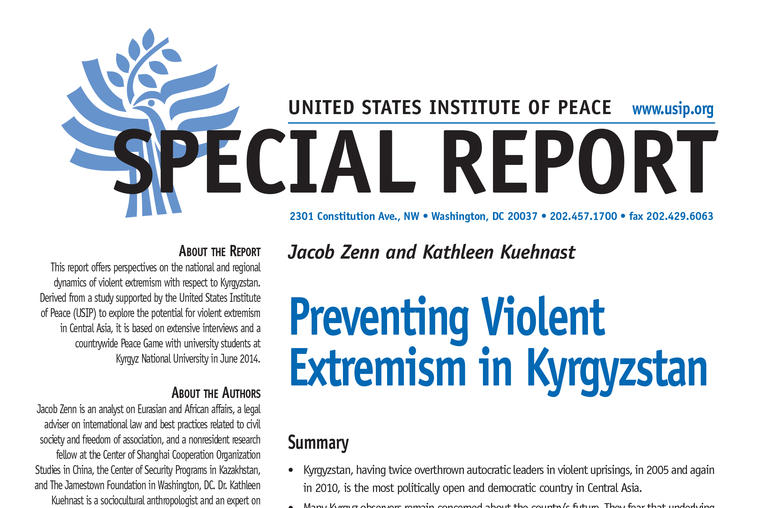
Preventing Violent Extremism in Kyrgyzstan
Kyrgyzstan is the only country in Central Asia that has seen significant political transition since the breakup of the Soviet Union in 1991, having twice—in 2005 and 2010—overthrown autocrats in violent uprisings. At the same time, its new democratic institutions, elected leaders, and multiparty parliament make it a test case for political liberalization. If its political system fails or the country falls apart, so will the first democratic experiment in Central Asia. Concerns within Kyrgyzst...
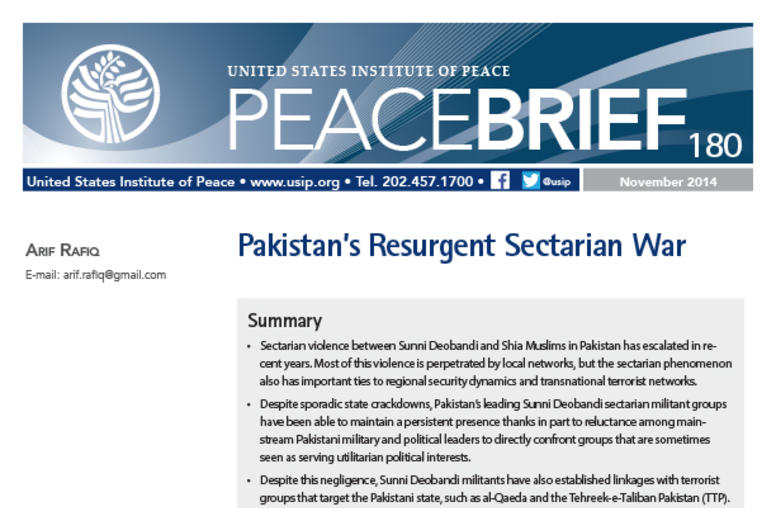
Pakistan’s Resurgent Sectarian War
The violence across the Middle East has energized sectarian militant networks on both sides of the conflict in Pakistan. This report gives an overview of the history of conflict between Sunni Deobandi and Shia militant and political organizations in Pakistan and offers warnings about further radicalization there and its effects on the politics of the state.
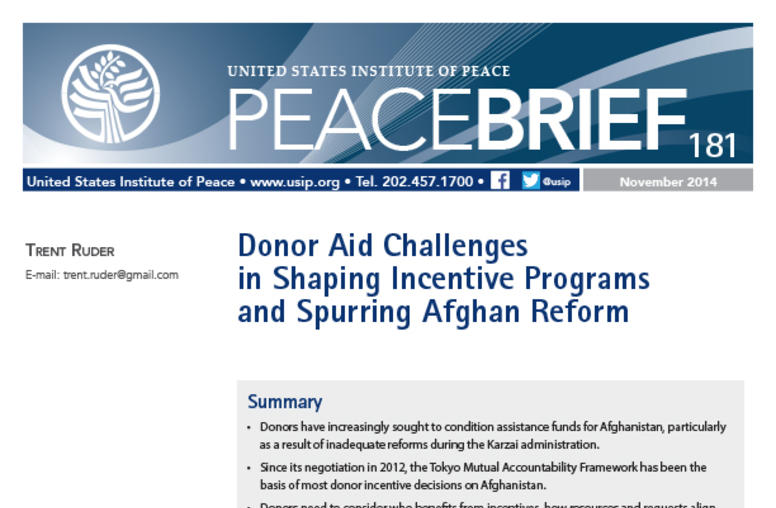
How to Spur Afghan Reforms: The Limits and Benefits of Incentives
Although not a magic bullet, incentive programming can help shape dialogue with the new Afghan administration. What are incentive programs? How do issues such as stakeholder participation, Afghan capacity and consequences of success or failure affect policy decisions for incentive programs? In addressing these questions, this PeaceBrief points the way to more effective incentive programming.
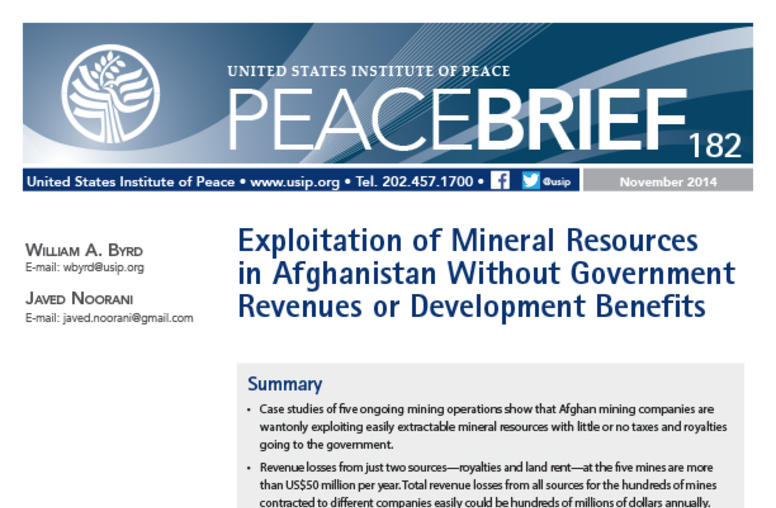
Exploitation of Mineral Resources in Afghanistan
Mining companies in Afghanistan are wantonly exploiting the country’s mineral resources with little or no taxes and royalties going to the government. Contracting of mines has been susceptible to political influence, there is little accountability and sometimes conflicts with local communities have led to violence and deaths. This Peace Brief examines these problems and offers some recommendations to improve the situation.
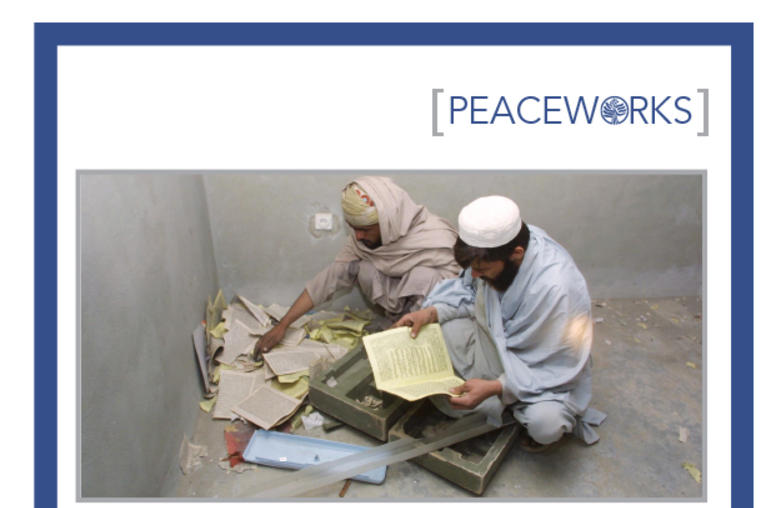
Rhetoric, Ideology and Organizational Structure of the Taliban Movement
This report examines the evolution of the Taliban case for armed struggle and the minimal adjustments Taliban rhetoricians made to cope with the impending political change in Afghanistan in 2014. It considers how the Taliban might make a case for peace, should they take the political decision to engage in negotiations.
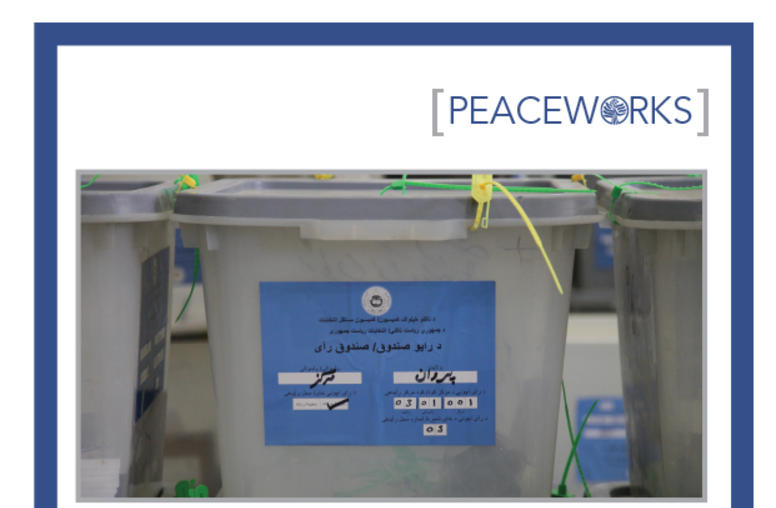
Violence, the Taliban, and Afghanistan’s 2014 Elections
This report sheds light on the controversial 2014 presidential election in Afghanistan through the murky lens of the Taliban. How did they view it? Was the violence as high as in previous elections? What were their strategies in the lead-up? How did it affect their image, if at all? What strategies are they adopting in its wake? Are they moving closer to Afghan mainstream politics, which for the most part is still made of strongmen, manipulation, and corrupt patronage networks rather than bas...
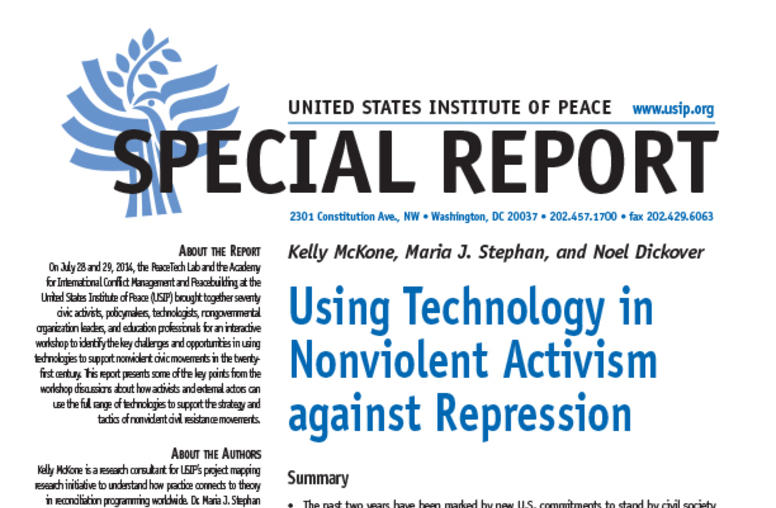
Using Technology in Nonviolent Activism against Repression
In an era of crackdowns on freedoms of peaceful assembly and association, what role can technology play in strengthening nonviolent civic mobilization? How can activists strategically apply the full range of technologies to build and sustain movements where the options for nonviolently resolving conflicts are diminishing under increased repression? Informed by discussions from a USIP workshop, this report explores avenues for engagement between activists and external actors to use technology ...
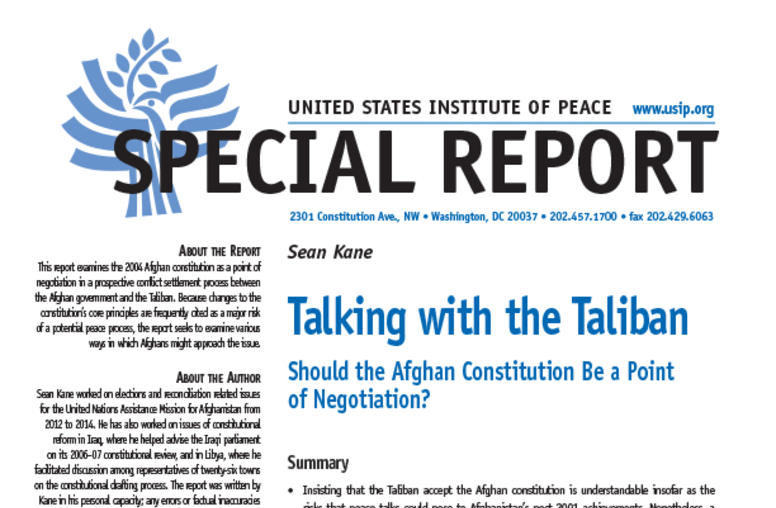
Talking with the Taliban
Drawing on the comparative experiences of governments negotiating with insurgencies in the Philippines, Myanmar, and Colombia, as well as a detailed examination of the Taliban’s possible constitutional demands, this report examines the 2004 Afghan constitution with respect to its potential inclusion in peace talks between government and Taliban leaders. It argues that, if the issue is handled carefully and with strategic intent, the Afghan government may be able to seize the political high gr...
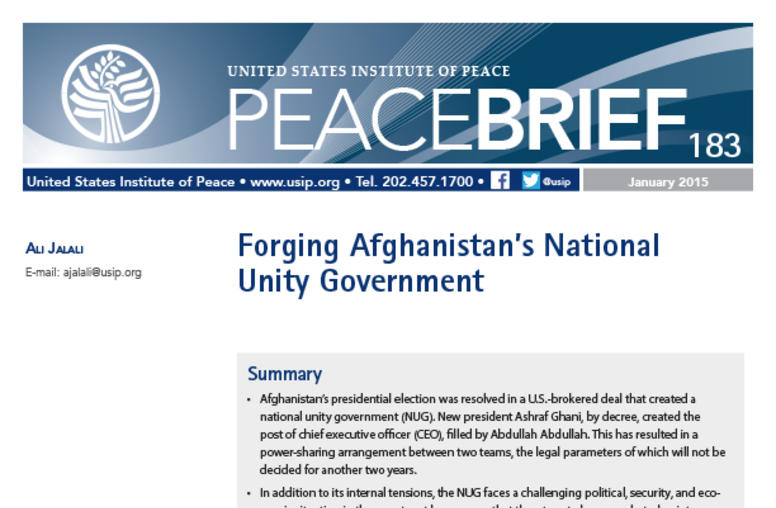
Forging Afghanistan’s National Unity Government
Afghanistan’s presidential election was resolved by a U.S.-brokered deal that led, ultimately, to a power-sharing arrangement within the new national unity government. This has set up tensions within the government—even as Afghanistan’s leaders face an uncertain political, economic, and security situation across the country, as international financial and military support draws down. The formation of the new government, however, also presents opportunities for serious reforms of Afghanistan’s...
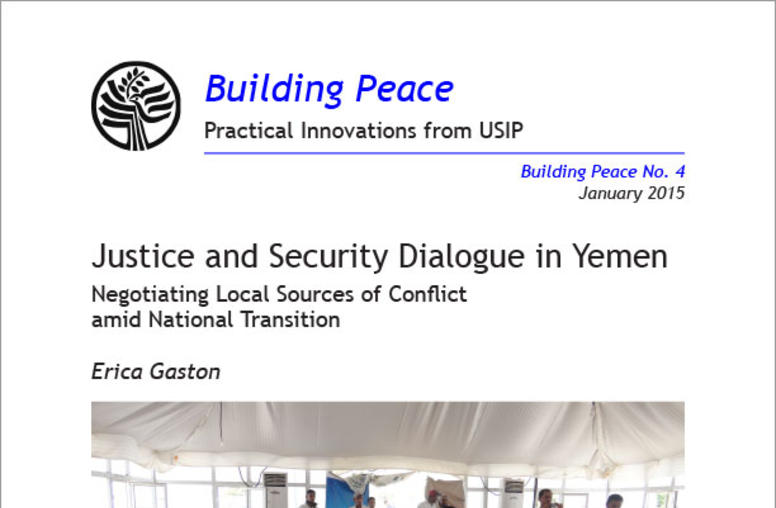
Justice and Security Dialogue in Yemen
This report discusses the Justice and Security Dialogue (JSD) processes and activities which took place in the governorates of Abyan and Marib from early 2013 through early 2014. It details the research, planning, and implementation of context-driven dialogues, including outcomes, conclusions, and lessons learned.